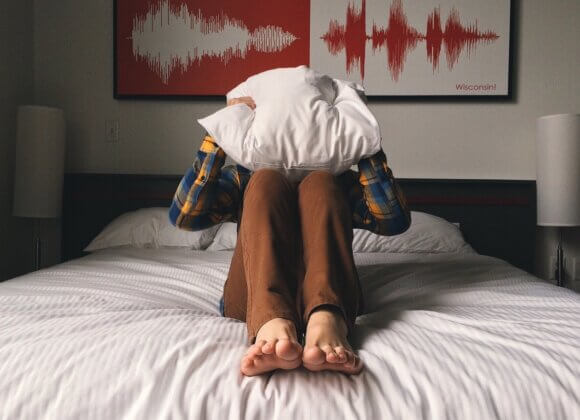Stress triggers such as noise, time pressure and life changes are not only stressful. In the long run, they can even make you ill.
For many, it is becoming increasingly difficult to find relaxation, peace and inner balance in their lives. “I’m under stress” is one of the most frequently heard or uttered sentences. Although it usually refers to time and deadline pressure, there are many more factors that can trigger stress. Noise, for example, is at the top of the list, although not every noise is perceived as such. “It depends on the individual’s attitude as to whether a noise is perceived as pleasant or annoying,” says Dagmar Arco, an expert in environmental medicine. This means that one person can switch off while listening to their favorite music at full volume, while their neighbor’s blood pressure rises.
Threat of health consequences
But both have one thing in common – namely the risk of health consequences. For example, noises from around 85 decibels – a level that can be reached in discos and at concerts – can damage the sensitive hair cells in the inner ear and cause sudden hearing loss or tinnitus. “Once you go to the disco, your ear can regenerate,” says Arco. However, frequent or even regular exposure to noise can lead to permanent hearing damage.
Noise causes stress
But it’s not just our ears that suffer, which are also active during our sleep: “Exposure to noise over a long period of time can have an effect on the autonomic nervous system,” says Arco. The consequences of this include high blood pressure and heart problems, as well as sleep and concentration disorders. In addition, memory suffers, stress hormones are released and relaxation is not possible. “In the worst case, it can even lead to depression as a secondary symptom,” says the environmental medicine specialist. The emotional level also suffers: constant noise can lead to imbalance and aggression.
Better windows, conversations and co.
So to do something good for your health and quality of life, you should protect yourself as much as possible from noise. “If you live on a busy road, you should consider installing soundproof windows,” says Arco. You could try to talk to noisy neighbors and use earplugs when attending concerts and the like. “But it also makes sense to question your attitude towards the source of the noise,” she says. The positive effect of more rest comes quickly: The autonomic nervous system calms down, relaxation sets in – body and mind recover.

There are other factors for stress
In addition to noise, however, pressure to meet deadlines and perform, changes in life situation, bullying, fear of losing your job, excessive demands on yourself or exaggerated expectations also trigger stress, which can ultimately lead to burnout. There are various warning signs that indicate stress: On a physical level, these include difficulty falling asleep and sleeping through the night, tinnitus, headaches, tension, cardiovascular and gastrointestinal problems or a weakened immune system. Concentration problems, focusing on work while neglecting social contacts and hobbies, the feeling of being permanently overwhelmed, lack of drive and even depression or panic attacks should also ring alarm bells.
Pay attention to rest and relaxation in everyday life
To prevent this from happening, you should therefore consciously pay attention to phases of rest and relaxation in everyday life: Some find them in physical exercise, others in cultural activities, a good conversation or reading a book – depending on your preference. One thing is particularly important: the job should be fun!
Related posts:
Switch off and reconnect – the importance of “digital detox”













